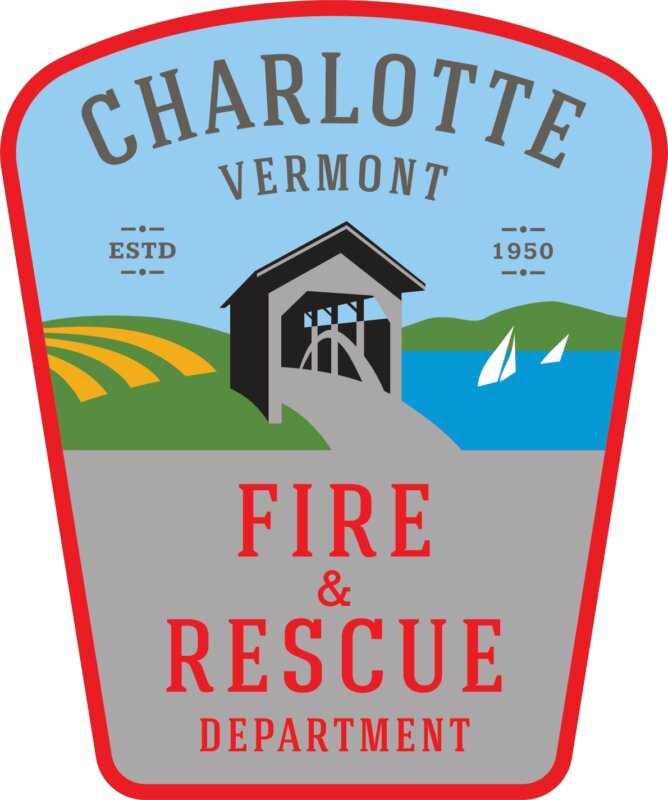Fire and rescue service decision onhold at least until after budget season
For quite a while, it looked like this year the Charlotte Volunteer Fire and Rescue Department would become a department of the Charlotte municipal government, instead of a separate nonprofit organization.

Now, it looks like this transition won’t happen at least until next year — if it does happen.
When the fire and rescue department and the selectboard began substantive talks about the transition and the town hired Dan Lyons of Gallagher, Flynn & Company as a consultant to help with the change, the switch looked relatively imminent.
Late spring or summer of this year was mentioned as when the town would take over. Obviously, that’s not happening.
Now, selectboard chair Jim Faulkner said in a conversation, he couldn’t predict when the transition might happen.
If the transition does happen, it couldn’t be until after the board has finished this year’s town budget in January for voter approval at Town Meeting Day, Faulkner said. And the selectboard and the fire and rescue service might modify the memorandum of agreement that governs the two entities’ responsibilities and authorities, so that it fixes the selectboard’s concerns about the relationship. In which case, the town might not take over management of the fire and rescue service.
An update on Lyons’ report on the fire and rescue situation was scheduled for the selectboard updates portion of the meeting on Aug. 14, the last thing on that night’s agenda. After the board approved modifying the contract for the renovation of the tennis courts to change one of the courts into two pickleball courts, Faulkner tried to bring up fire and rescue.
But board member Lewis Mudge interjected that there was another item on the agenda before the fire and rescue update — approval of previous selectboard minutes. A terse exchange followed as Faulkner said Mudge had “jumped into” his comments, and Mudge insisted he was just advocating for following the agenda.
Faulkner yielded so the fire and rescue discussion didn’t happen then, and it didn’t happen at its appointed time, because the board members adjourned before getting to its updates. However, Lyons’ report was part of the materials presented for the meeting and is on the town website at tinyurl.com/2nkc57u4.
In his report, Lyons says fire and rescue would prefer to report to a town manager rather than a town administrator, but in a conversation after the selectboard meeting, Faulkner said that the Charlotte Fire and Rescue Service wouldn’t decide that issue for the town.
The subject of what the town’s eventual relation with fire and rescue might be was “put on hold until we get some of these some of these issues that we’re trying to get off our table right now,” Faulkner said.
One of the biggest things on the selectboard’s table right now is the budget, which absorbs a lot of its attention every year at this time.
Some in the audience appeared disturbed by the news that some of the electricity the town gets from installing solar panels on the town garage is planned to go to the fire and rescue building, just like it’s hoped those panels will also help feed the energy needs of town buildings in West Charlotte. The objection is apparently because the fire and rescue building is not a town-owned building. It’s owned by fire and rescue.
Selectboard members tried to make clear that the town is already paying the power bill for the fire and rescue service, so it is a town benefit if money is saved on those bills.
“We want to make sure that we’re trying to satisfy all electrical needs in town, including that, even though we haven’t got that building,” Faulkner said, because the town is paying for it anyway.
If the town does assume management of fire and rescue, somehow the town of Charlotte would need to assume ownership of the fire and rescue building, he said.
For several years, the selectboard has expressed concerns because the town approves a good portion of its budget to fire and rescue. The fire and rescue budget is created by that organization and it’s itemized, but various selectboard members have objected that the town doesn’t have any oversight of how the fire and rescue budget is actually spent.
The town cuts a monthly check for fire and rescue that’s one twelfth of the approved fire and rescue budget. Unlike town departments, the selectboard has no say so over whether the money is spent as it is allocated in the approved fire and rescue budget. This has been a driving factor in the town’s push to make fire and rescue a town department.
Faulkner said that instead of assuming control of fire and rescue, maybe the memorandum of agreement could be reworked so the town does have more input into how fire and rescue funds are spent.
But this year there’s just not enough time with budget season just around the corner and fire and rescue will just have to develop its budget as in years past and submit it for selectboard approval, he said, which will then be submitted to voters for their approval at Town Meeting Day.
“We’re not going to have the ability or the time to create their budget,” Faulkner said.
Maybe next year.

